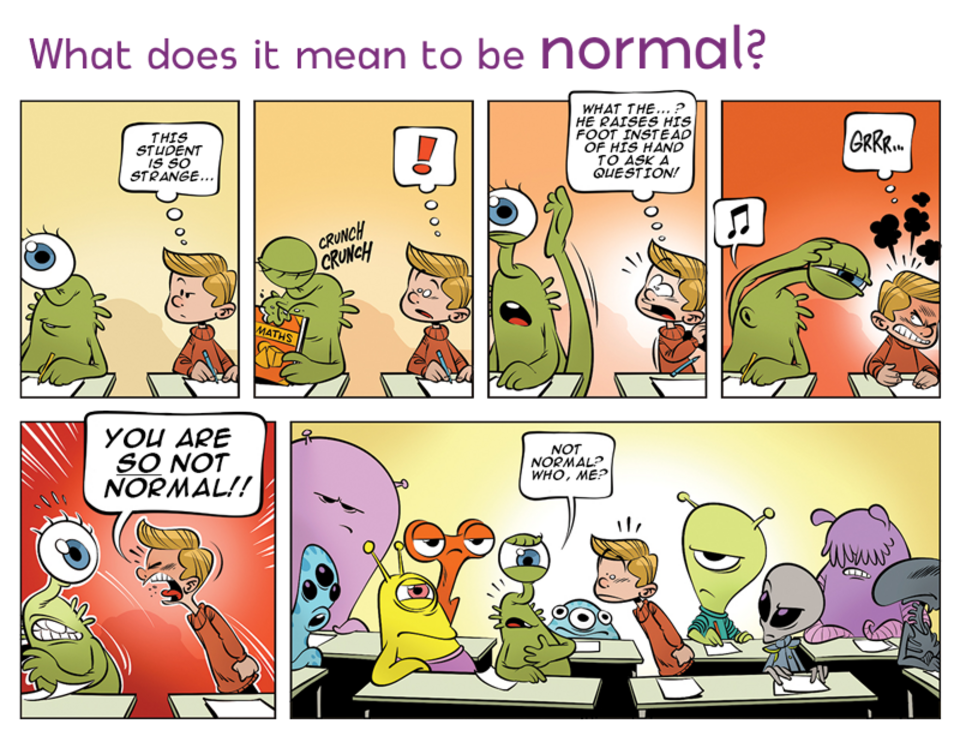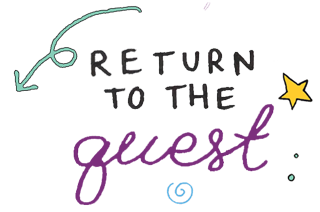
Interviewing strangeness
| Objective: To p lay with the concept of strangeness by conducting improbable interviews! |
Duration : 15 to 45 minutes
Material :
- Sheets of paper and pencils
- Coloured pencils and markers
- A fake microphone
Instructions :
When you're bored, you sometimes notice strange things that you've never seen before. If you look closely enough, that bathtub seems rather bizarre, a bit like a turtle on its back. And that spoon… isn't there something weird about the fact that it keeps bringing food up to our mouths? As a reporter for your community’s daily newspaper, The Strangeness Sentinel, your assignment is to explore your home to find the oddest objects to interview!
...
-
Prepare the interviews. As a responsible reporter, take a moment to think about the questions you want to ask your interviewees: What do you need to ask these objects to better understand them? You want to know what their daily life is like and how it differs from yours. Write your questions on a piece of paper so you don't forget them.
-
Conduct the interviews. Explore your home and, whenever you come across a strange object, interview it! Imagine the answers that this object would give you and write them on your sheet of paper. You can even draw the object next to the transcript of the interview. Remember: the object wants to convince you that it is strange... but not boring!
-
Think about the interviews. After conducting a few interviews, you will have become an expert on strangeness! You're ready to think about the following questions: What makes something strange? Can anything be strange? Is it a bad thing to be strange? Who decides what is strange and what isn’t?
...
Bonus : To have even more fun, reverse the roles! Imagine that one or more objects from your house is interviewing you, because they think you're the strange one! What questions would these objects ask you if they wanted to understand your human life? What would you answer them and why? What are the most important concepts in your life that you would have to explain to them, and how would you do it? |


This comic strip is reproduced with permission from the philosophy corners of our community partner, Les Débrouillards magazine. It was produced in collaboration with our team at the Institute of Philosophy, Citizenship and Youth.
| Tricks for tots : Have you ever found something strange while an adult finds it normal? Or the other way around: you find something completely normal, but adults find it very strange? Try out this activity with an adult and ask them to show you an object that they find normal. Do you find it normal too, or do you find it strange? If you find something strange, how can you explain its strangeness to someone who finds it normal? |
| Tips for teens : It's not only objects that we find strange, but also people: some are considered weird by society, others are viewed simply as strangers. But is that justifiable? Ask yourself the following questions: Is it bad to think that someone is strange? Why or why not? What makes someone a stranger? Should we treat strangers differently than people we know? In our multicultural societies, there might be some voices seeking to make certain groups seem more like strangers than they really are—what do you think? |
Share your creative reflections by sending them via email.
Include photos of your projects and notes of your thoughts, as well as your first name and your age!


